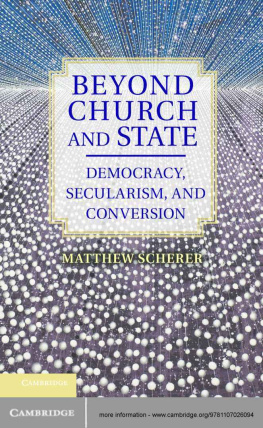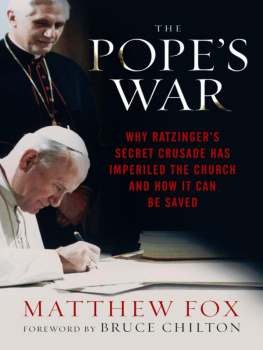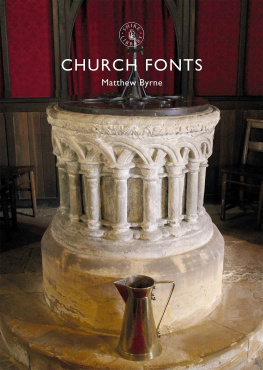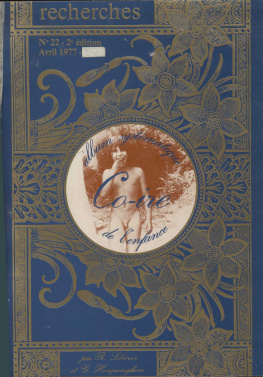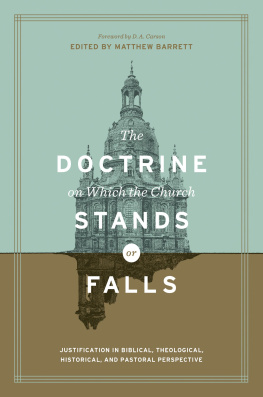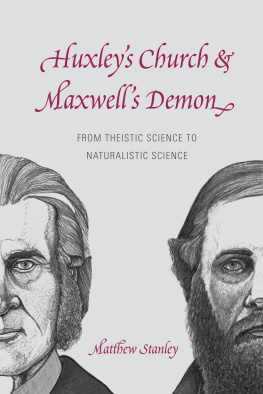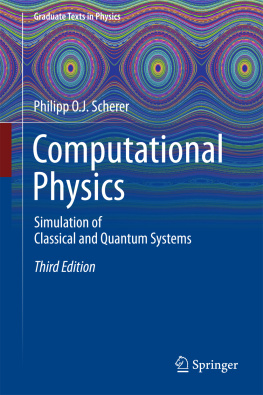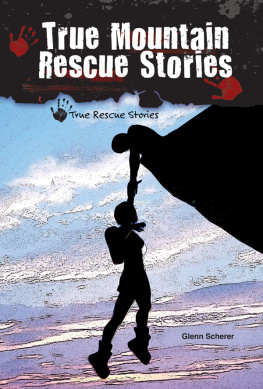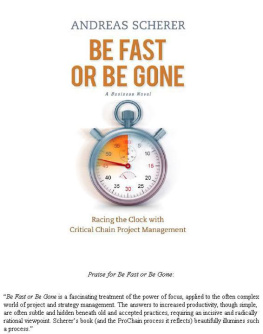Matthew Scherer - Beyond Church and State
Here you can read online Matthew Scherer - Beyond Church and State full text of the book (entire story) in english for free. Download pdf and epub, get meaning, cover and reviews about this ebook. year: 2013, publisher: Cambridge University Press, genre: Religion. Description of the work, (preface) as well as reviews are available. Best literature library LitArk.com created for fans of good reading and offers a wide selection of genres:
Romance novel
Science fiction
Adventure
Detective
Science
History
Home and family
Prose
Art
Politics
Computer
Non-fiction
Religion
Business
Children
Humor
Choose a favorite category and find really read worthwhile books. Enjoy immersion in the world of imagination, feel the emotions of the characters or learn something new for yourself, make an fascinating discovery.
- Book:Beyond Church and State
- Author:
- Publisher:Cambridge University Press
- Genre:
- Year:2013
- Rating:5 / 5
- Favourites:Add to favourites
- Your mark:
- 100
- 1
- 2
- 3
- 4
- 5
Beyond Church and State: summary, description and annotation
We offer to read an annotation, description, summary or preface (depends on what the author of the book "Beyond Church and State" wrote himself). If you haven't found the necessary information about the book — write in the comments, we will try to find it.
Beyond Church and State — read online for free the complete book (whole text) full work
Below is the text of the book, divided by pages. System saving the place of the last page read, allows you to conveniently read the book "Beyond Church and State" online for free, without having to search again every time where you left off. Put a bookmark, and you can go to the page where you finished reading at any time.
Font size:
Interval:
Bookmark:
Secularism is often imagined, in Thomas Jefferson's words, as a wall of separation between Church & State. Beyond Church and State moves past that standard picture to argue that secularism is a process that reshapes both religion and politics. Borrowing a term from religious traditions, the book goes further to argue that this process should be understood as a process of conversion. Matthew Scherer studies Saint Augustine, John Locke, John Rawls, Henri Bergson, and Stanley Cavell to present a more accurate picture of what secularism is, what it does, and how it can be reimagined to be more conducive to genuine democracy.
Matthew Scherer is Assistant Professor of Government and Politics at George Mason University.

This publication is in copyright. Subject to statutory exception and to the provisions of relevant collective licensing agreements, no reproduction of any part may take place without the written permission of Cambridge University Press.
Cambridge University Press has no responsibility for the persistence or accuracy of URLs for external or third-party Internet Web sites referred to in this publication and does not guarantee that any content on such Web sites is, or will remain, accurate or appropriate.
For my parents,
Patricia Scherer and Oscar Scherer
This book wouldn't be anything like it is without William E. Connolly: thanks, Bill, for everything your work makes possible, and for showing me something new every time we talk. Jane Bennett and Dick Flathman are two of the most original and creative voices in political theory; while I was their student, they taught me a lot about trusting my own ideas and following them wherever they lead. I could not have had better teachers. Paola Marrati and Hent de Vries welcomed me with extraordinary graciousness in their seminars in the Humanities Center Im immensely grateful for the privilege of studying with them and for the time I have spent with each of them. Johns Hopkins was a wonderful place to be a graduate student in large part because of the people there with me and I thank in particular Jennifer Culbert, Frances Ferguson, John Marshall, Lars Tnder, Paulina Ochoa, Smita Rahman, Rob Watkins, George Oppel, Simon Glezos, Bhrigupati Singh, John Olson, and Patrick Peel for the important and timely interventions they made in my work, for their sustained and continuing friendship, or for both.
The two years I spent as a postdoctoral Fellow at UC Berkeley were enriched by the generous influence of many people. My thanks especially to Wendy Brown, Judith Butler, Charles Hirschkind, Saba Mahmood, David Bates, Pheng Cheah, Niklaus Largier, Bob Sharf, Felipe Gutterriez, Shalini Satkunanandan, Marianne Constable, Yves Winter, Katherine Lemons, Michael Allan, Karen Feldman, Ramona Naddaff, Ivan Ascher, Nancy Weston, Vicky Kahn, Ron Hendel, Victoria Frede, and Samera Esmeir.
Talal Asad read the entire manuscript of this book I can't thank him enough for taking an interest in my work and sharing his time and thoughts with me. Jos Casanova, George Shulman, James Martel, Terrell Carver, John Seery, Mort Schoolman, Stephen White, Kennan Ferguson, Steve Johnston, Char Miller, Mike Gibbons, Simon Stow, Jason Frank, Sam Chambers, Davide Panagia, Tracy Strong, Roxanne Euben, Kirstie McClure, Andrew Norris, David Alvarez, Tom Dumm, Lori Marso, Chris Nealon, Joshua Dienstag, Sara Rushing, David Gutterman, Andrew Murphy, Barbara Arneil, Emily Nacol, Danielle Allen, David Kim, Lisa Ellis, Ted Miller, and Brad Bryan made invaluable comments on this manuscript and/or were indispensable partners in conversation. Thank you all. I benefited greatly from invitations to share my work in progress by giving lectures or participating in workshops at Johns Hopkins, Berkeley, Maryland, Columbia, and George Washington my thanks especially in those contexts to Ingrid Creppell, Derek Malone-France, Abe Newman, Robert Adcock, John Sides, Fred Alford, Jim Glass, and Ian Ward. My thanks to Tom Banchoff for appointing me as a research Fellow at Georgetown's Berkley Center for Religion, Peace, & World Affairs. Thanks are also due to the Nuttle family for endowing the Patrick Henry postdoctoral fellowship in early American politics at Johns Hopkins, and to the Mellon Foundation for funding my postdoctoral fellowship in the humanities at Berkeley both fellowships supported the research and writing of this book.
Libby Anker, my most cherished critic, read each chapter many, many times she also made me rewrite each many, many times. I am very lucky to have such a tireless and incisive interlocutor; more lucky still to have such an amazing and beloved life partner.
Finally, love and thanks to my family who are everything: Elisabeth Robin, Daniel Jay, Lilah Eve, Pat, Oscar, Carol, Billie, Shell, Annie, Berkeley, Mark, Jon, David, Dara, Christie, Bridget, Bella, Charlotte, Madeline, Elias, Everett, Noah, and Nathan.
An earlier version of Chapter was published as Saint John: The Miracle of Secular Reason in Political Theologies: Public Religions in a Post-Secular World , eds. Hent de Vries and Lawrence E. Sullivan (New York: Fordham University Press, 2006), 34162. Part of the Introduction appears in my entry on Secularism in The Encyclopedia of Political Thought , eds. Michael Gibbons, Diana Coole, and Lisa Ellis (Hoboken, NJ: Wiley-Blackwell). I am grateful for permission to reprint these here. My thanks also to Barbara Takenaga, DC Moore Gallery, and Henry V. Heuser for permission to reproduce Nebraska Painting, EL 1 on the cover of this book.
This book's thesis can be stated in three parts: First, secularism is not now, and in fact never has been, primarily a matter of separating religion and politics, despite the prevalence of that authorized view. Second, secularism has been, and continues to be, a process that transforms religion and politics. Third, in a Euro-American context, in a global context even, if done carefully, it will be useful to think of that process of transformation as a process of crystalline conversion. To develop this thesis, I draw upon a figure of conversion that is inscribed in the margins of the Augustinian tradition; that is expressed in minor trajectories within the writings of the great early modern and contemporary proponents of secularism, John Locke and John Rawls; and that recurs as a major theme in the work of two of the past century's most salient philosophical critics of secularism, Henri Bergson and Stanley Cavell. I argue that the commonplace image of secularism as the separation of church and state presents an obstacle to the development of a more genuinely democratic politics, and that refiguring secularism as a process of conversion may open new possibilities for democracy within the condition of deep pluralism that marks contemporary global politics.
Font size:
Interval:
Bookmark:
Similar books «Beyond Church and State»
Look at similar books to Beyond Church and State. We have selected literature similar in name and meaning in the hope of providing readers with more options to find new, interesting, not yet read works.
Discussion, reviews of the book Beyond Church and State and just readers' own opinions. Leave your comments, write what you think about the work, its meaning or the main characters. Specify what exactly you liked and what you didn't like, and why you think so.

